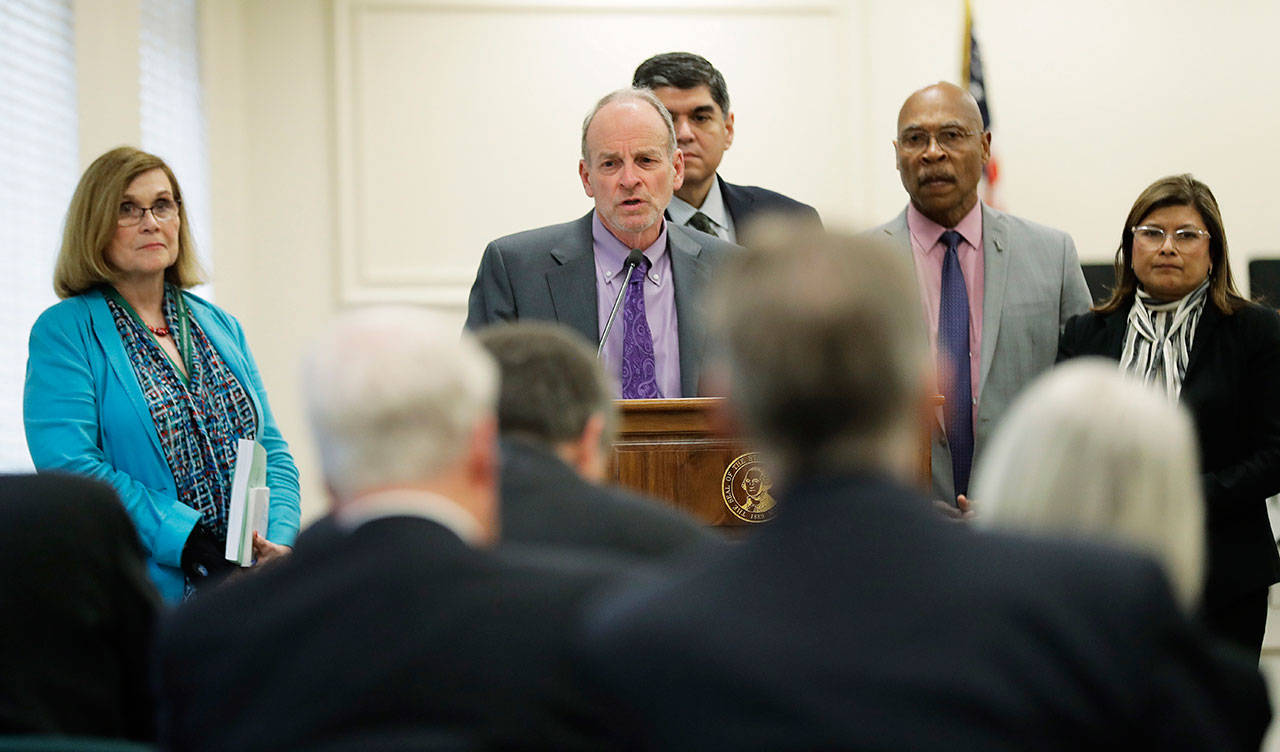By Tom James
The Associated Press
OLYMPIA — State House Democrats released their two-year transportation budget proposal Monday, with $9.9 billion in spending for projects including a new hybrid-electric ferry and the conversion of two more.
The package sets aside nearly $4 billion for highway improvements and preservation.
Purchasing one new hybrid ferry and converting two existing vessels together make up about $143 million; the budget also targets a small slice of a much larger court-mandated salmon protection project that will require spending billions on culverts statewide by 2030.
The plan comes as part of the larger process of deciding the state’s funding priorities — and how it will raise money — over the next two years. Senate Democrats are expected to unveil their own transportation proposal later in the week.
“Our state’s population has grown by 1 million in the past few years because of our booming economy,” said Democratic Rep. Jake Fey, chairman of the House Transportation Committee, in a release.
“That growth has put a great strain on our highways, ferries and transportation system.”
Olympia Rep. Andrew Barkis, the ranking Republican on the committee, said that overall he thought the spending in the budget was necessary and was comfortable with its sources.
Barkis also said he could support especially the electrification of the ferry system, pointing to fuel savings.
Estimates show the hybrid ferries saving 25 percent on fuel costs compared to traditional diesel vessels.
While funded mostly with debt, the package also proposes raising some fees especially in the ferry system, where riders would see a 6 percent increase in fares by 2021, along with a credit card fee.
Notably absent from the plan was any kind of carbon fee — which others have proposed using to pay for state transportation projects, including a multibillion-dollar 2018 court order requiring the state to upgrade culverts across the state.
After a lawsuit over treaties guaranteeing tribes the right to harvest salmon, courts found that habitat destruction impinged on that right, and in 2018 the U.S. Supreme Court upheld an order requiring the state to upgrade more than 900 culverts to ease salmon passage, many by 2030.
Estimates have put the cost of replacing the culverts as high as $3.5 billion.
The Democratic head of the Senate Transportation Committee earlier released his own transportation package — separate from the not-yet-released Senate transportation budget — that proposed using a carbon fee to cover that cost.
But Fey’s budget proposes funding only the first portion of the court-ordered replacement, setting aside $239 million over the first two years for state and local replacement projects.
Fey, who represents Tacoma, said finding the rest of the money would be “daunting,” and would likely require a new revenue source, but that it would be better handled in a later session.
Along with big-ticket items such as highway improvements, the budget also targets smaller programs: adding drones for investigating fatal crashes from the air, hiring experts on autonomous vehicles, and programs to expand transit access for students and the homeless.
The budget also allocates $8.75 million to planning an Interstate 5 bridge across the Columbia River, with much of the money held in reserve until state authorities develop a re-engagement plan.

